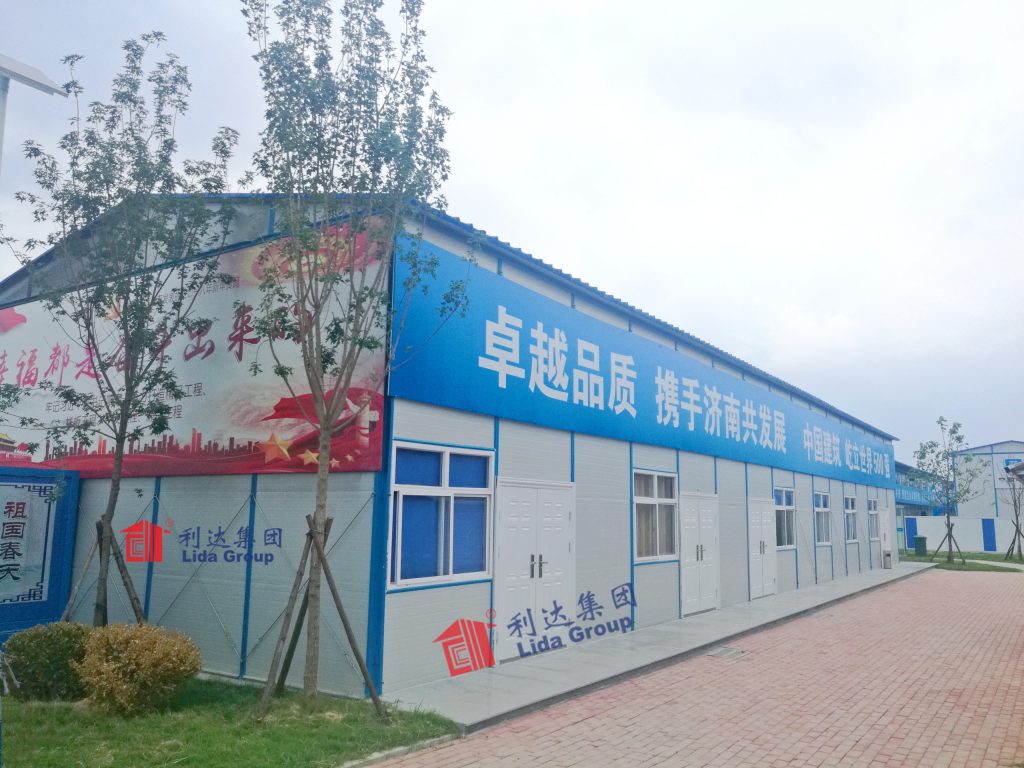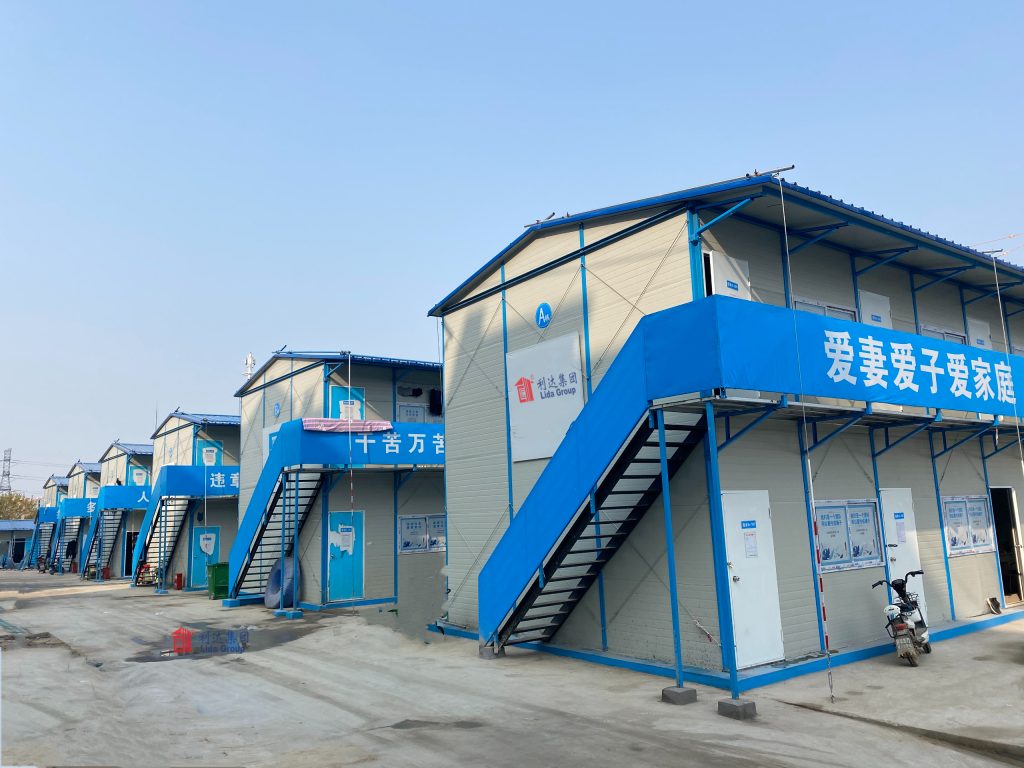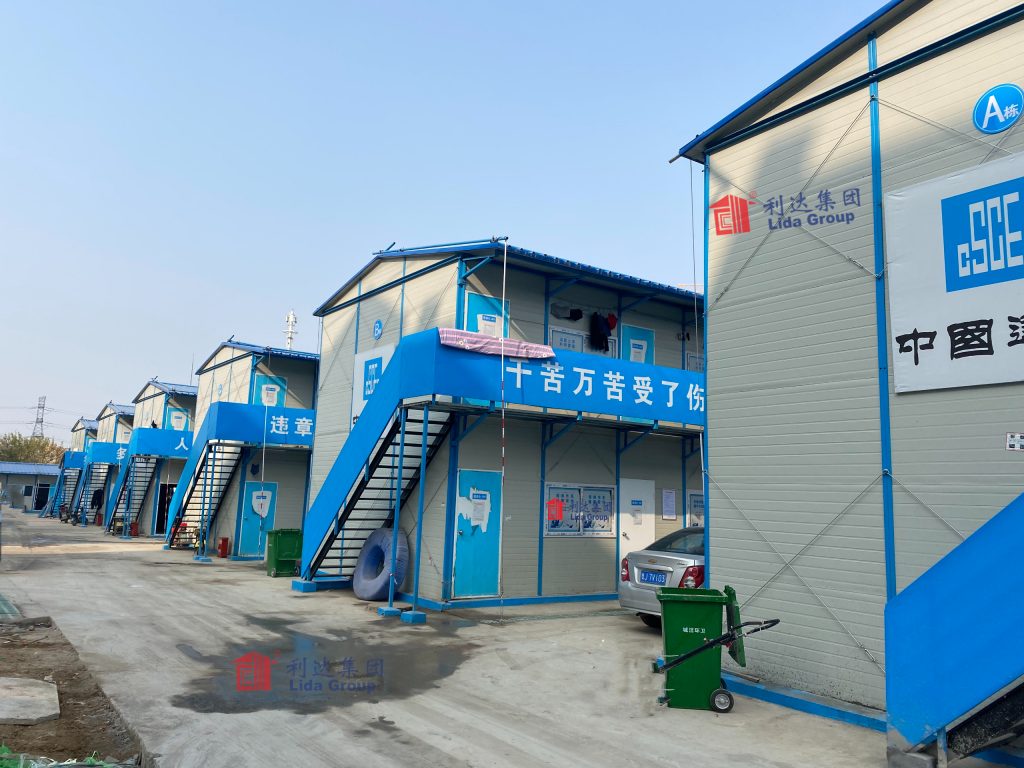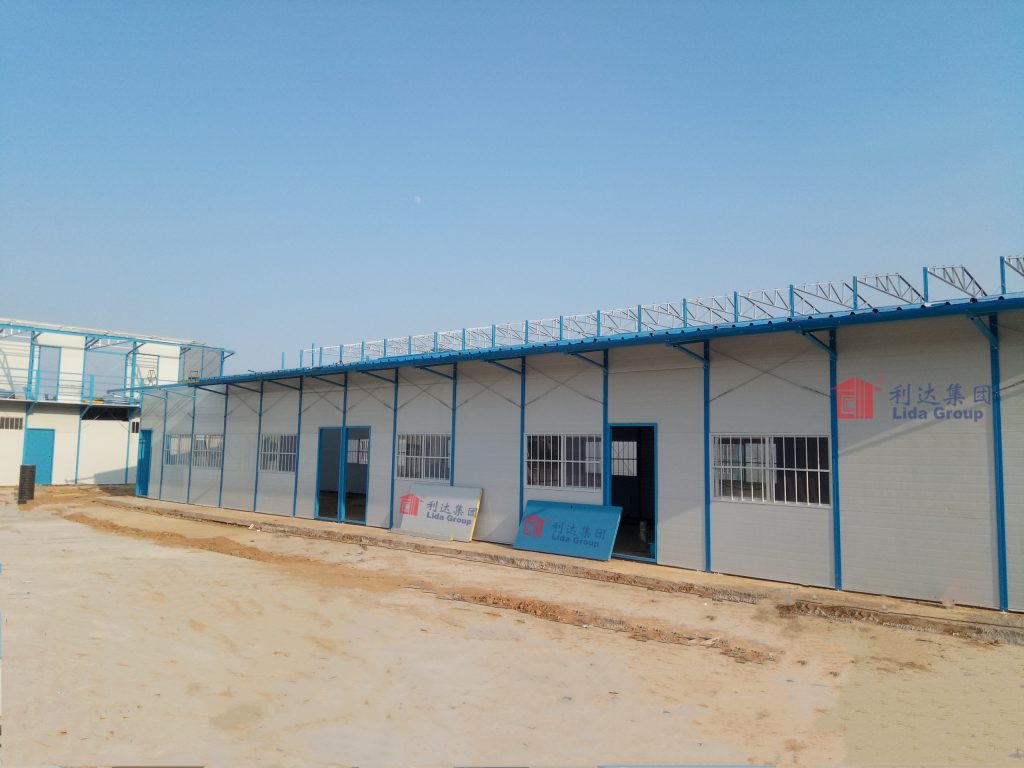As humanitarian crises and armed conflicts destabilize regions worldwide, peacekeeping forces face tense deployments amid volatile conditions. Their operations require secure yet humane accommodations amid remote or contested areas lacking robust infrastructure. For one international peacekeeping organization’s new border outposts, architects turned to China’s prefabrication experts at Lida Group uniquely poised supplying resilient shelters supporting difficult missions.
Briefings detailed needs for rapidly deployable hardened structures accommodating up to 50 personnel per outpost with independent utilities, medical aid stations and operations centers. Harsh climates demanded robust envelopes impervious to extremes while insulating interiors comfortably. Given risks of insurgent attacks, paramount requirements centered protecting occupants within against small arms fire rated under NATO STANAG 4569 Level 2 standards for ballistic protection.
Beyond fortified construction, architects prioritized dignified living conditions supporting peacekeepers’ mental wellbeing during prolonged isolated postings. Designs embraced daylighting, operable windows and ventilated facades promoting psychological resilience through connection to nature despite remote locations. Modularity allowed phased expansions aligning with evolving population densities or operational needs over changing conflict dynamics.

Lida Group engineers proposed modular composite panelized shelters satisfactorily meeting all criteria through innovative composite construction optimized for mass-customization. Prototypes incorporated their signature hot-dip galvanized structural steel frames fused between two rigid faces of fiber-reinforced composite panels acting compositely. Focus centered ballistic-rated core alternatives integrating seamlessly into the prefabricated structural expression.
After extensive research, a composite blend of high-density polyethylene (HDPE) and aluminum oxide microspheres emerged as the optimal core offering exceptional hardness, density and self-sealing properties under penetrative impact. Laboratory tests validated proposed 12mm thick facings met demanding threat ratings through the unique homogeneous composite construction uniformly distributing impact stresses across wide panel planes.
To maximize occupant safety, engineers incorporated spaced standoff geometries optimizing backface signature results. Reinforced edges and connections distributed stresses smoothly across modular panel interfaces composed as unitized exteriors. Standardized integrated venting, windows and security screening balanced natural daylight with forced-air circulation and protection against thrown ordinances rated far beyond normal building code assumptions.

Full-scale mockups verified ease of modular assembly without special tools through concealed fasteners and interlocking interfaces. Foundations installed via helical screw-piles penetrating even rocky soils without digging equipment. Modules interconnected rapidly to form complete hardened envelope assemblies enclosing finished insulated interiors ready for services hookups and occupation.
Modular coordination streamlined manufacturing and installations drastically. Lida Group’s precision roll-forming produced standardized HDPE-faced panels reproducibly with interior service chases, embedded fixtures and pre-located penetrations simplifying on-site fit-out logistics. Off-site electrical, plumbing and HVAC pre-routed within interstitial cavities eliminated delays coordinating numerous subcontractors traditionally slowing remote projects.
Automated cutting optimized material yields reducing waste. Panels trucked compactly flat-nested between protective sheets arrived ready for stacking under routine liftings via mobile crane. Self-contained utilities, medical bays and hardened operations rooms pre-completed per blueprints engaged as interlocking sub-assemblies forming turnkey hardened shelters on foundations within weeks, significantly ahead of containerized or permanent stick-built equivalencies.

Modularity inherently future-proofs expansions adapting to evolving needs simply through supplemental enrollments. Additional modules supplement capacities through simple butt joining field-welded to exteriors. Sub-dividable interiors rearrange through operable partitions. Modular stair and utility cores flexibly augment multistory volumes. Buildings evolve post-occupancy avoiding expensive reconstruction through phased incremental growth aligned with missions rather than fixed to original designs.
Compared to containerized systems reliant on site-retrofitting, architects hailed reduced vulnerability periods through arriving 95% complete with fit-outs, services and security systems pre-tested off-site. Shelters stood rapidly operationally ready versus awaiting piecemeal outfitting amid inhospitable conditions lengthening timelines traditionally. Elevated performances impressed through industrialized construction optimized for remote installations where logistical complications routinely prolong projects for years.
Most significantly, modular steel-composite panelizations unlocked post-conflict potentials. Demountable modular designs allow redeployment supporting evolving recovery phases reimagining structures as permanent civic facilities, schools or clinics modernizing stabilized regions through salvaged enclosures. Panels easily dismantle incorporating into expanded permanent developments revitalizing communities, empowering populations and fostering goodwill central to sustaining peace globally.

In conclusion, through advanced composite panel technologies and modular coordination principles, Lida Group’s solution empowers peacekeeping organizations confronting immense deployment challenges with dignified yet resilient accommodations. Ballistic-rated composite sandwich constructions combined with standardized modular designs streamline remote construction drastic living enhancements over containerized systems reliant on prolonged site-outfitting vulnerable to interruptions. Most importantly, the prefabricated shelters inherently support missions while future-proofing beneficial permanent infrastructure stimulating post-conflict rebuilding aligning with noble humanitarian objectives.

Related news
-
Contractors applaud Lida Group's interlocking insulated steel frame and composite panel system slashing construction schedules for affordable multipurpose venues.
2024-09-26 13:31:08
-
Lida Group designs engineered structural building system using light steel framing for low-cost construction of schools, clinics and shops in rural communities.
2024-09-12 14:14:59
-
Light Weight Steel Structure Building Durable Designed Manufactured Industrial Zone Park Plant Workshop Factory
2024-09-04 11:16:31
contact us
- Tel: +86-532-88966982
- Whatsapp: +86-13793209022
- E-mail: sales@lidajituan.com


